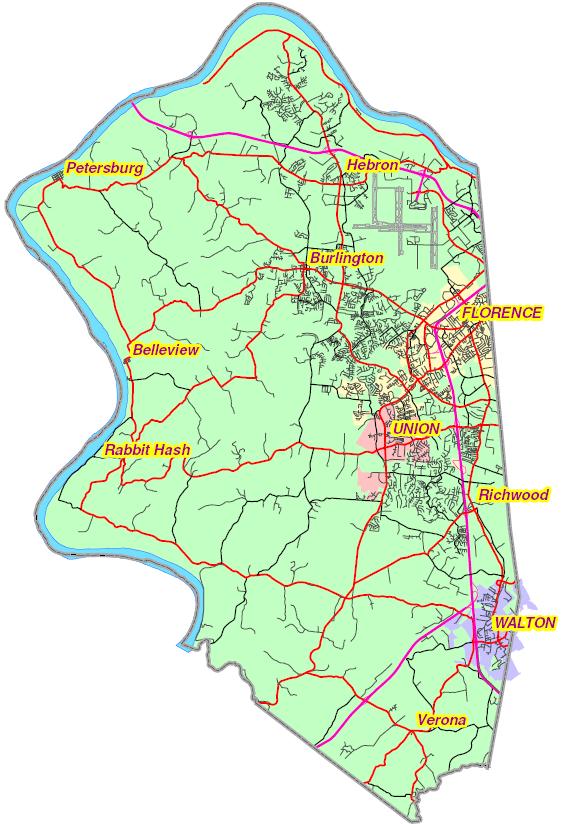–Matt Young
@mattyoungnow
Kentucky Senator Rand Paul has not announced that he will run for President next year, but with his official decision coming within the next few weeks, all signs point to a White House bid.
But Kentucky has thrown a wrench into his plans. Kentucky Revised Statute 118.405 states: “No candidate’s name shall appear on any voting machine or absentee ballot more than once.” The statute also prohibits him from registering as a write in candidate if he already appears on the ballot. Paul has already announced his bid for reelection in the Senate, which would prohibit him appearing on next years primary ballot as a presidential candidate.
To fix the issue, Paul pushed the Kentucky Republican Party’s Executive Committee to hold a Presidential Caucus next year, rather than a primary. In a Caucus, delegates throw their support behind a candidate in a hectic show of political affiliation.
[youtube https://www.youtube.com/watch?v=fLdYtfRKiiM&w=420&h=315]
Last week the GOP Executive Committee gave preliminary approval to hold a caucus for the office of President in Kentucky. However, this is only the first hurdle Paul has to jump.
Paul has a solid outsider’s shot at winning the Presidential nomination for the Republican Party and was bolstered by his victory in the recent CPAC straw poll. If Paul does obtain the nomination, he is still faced with the KRS statute for the general election; he still cannot be on the November 2016 ballot as a candidate for both Senate and President; a stumbling block a caucus won’t clear.
Paul has two remaining options: change the law through the State Legislature or challenge it in the court system. There is little time remaining in the current Kentucky legislative session, and no bill to change the law seems forthcoming. The legislature will have its bi-annual budget session at the beginning of 2016, giving Paul another shot through that avenue. However, the State House is still controlled by Democrats, and the most recent round of polling shows Democrat Jack Conway ahead of all Republican candidates for Governor. There is still a long way to go, but should Conway win, Paul could also be facing a gubernatorial veto to any legislation that might change the ballot access law. Overcoming that veto might prove too big a hurdle. However, if a Republican becomes Kentucky’s next governor, or Conway decides not to veto a bill that could pass, Paul will be in the clear.
Should Paul not find success through the legislature he can sue over the constitutionality of Kentucky’s ballot access law. The argument could be made that Kentucky’s law adds a requirement to candidacy that the Constitution does not include. This results in an undue burden for a candidate running for office. Article I, Sections 1 and 3 of the Constitution lay out the requirements for Senatorial and Presidential candidacy. They include age, citizenship, and inhabitance; there is no mention of multiple candidacies.
However, should Kentucky defend its law the Commonwealth could argue that Article I, Section 4 states “The times, places and manner of holding elections for Senators and Representatives, shall be prescribed in each state by the legislature thereof.” Article II, Section 1 also gives states the right to appoint electors in a manner of their choosing.
The billion-dollar question then is, “what would the Supreme Court say?”
The U.S. Supreme Court has taken up ballot access question in the past; two of which are particularly relevant to Sen. Paul. In Powell v. McCormack the Supreme Court heard the challenge of Rep. Adam Powell was elected in the midst of a scandal, and the House leadership voted to exclude him from participating in Congress. The Supreme Court found that Powell was wrongfully excluded from service in-part because (in a bit of an over simplification) Congress had created a criteria for service that does not exist in the Constitution.
Stay with me here, as the tangled web of legality takes over.
The 14th Amendment incorporates federal rights in the Constitution to the States. Paul could make the argument that the right to ballot access, as decided in Powell, must also apply to the states, and that Kentucky has created a criteria for candidacy that does not exist in the Constitution.
Take special note of the one word difference between those two sentences. In Powell Congress created a criteria for service, as in after being elected. Paul is challenging the criteria for candidacy, as in before being elected. If Kentucky defends its law they can make the argument that Powell does not apply to Sen. Paul because he has not already been elected for the office(s) in question.
[polldaddy poll=8721732]
The case that would likely be most central to a court challenge, however, is U.S. Term Limits, Inc. v. Thornton. Arkansas was one of many states that had established term limits for federal representatives. In Arkansas after an elected official had reached a specified number of terms of service their name could no longer appear on the ballot; however, they could still wage a write-in campaign and be reelected. Rep. Ray Thornton sued, claiming the law created undue restriction to his access to the ballot as a candidate.
The Supreme Court held that (again in an over simplification) the right to determine elected officials resided with the people, not the state. Therefore, not allowing Thornton’s name to appear on the ballot was an unconstitutional restriction, and that term limits were an unconstitutional requirement. Paul could argue similarly, that the people of Kentucky have the right to choose who they elect. The Supreme Court has already affirmed this, and he can use the Thornton decision to say that he is being held off the ballot unconstitutionally.
As solid a case as this seems, it is not a slam dunk. Kentucky could counter by arguing they are doing no such thing. They have not created an extraconstitutional requirement to Paul’s candidacy–after all, nobody is saying he cannot appear on the ballot–they have only created an inconvenience for Paul in that he must choose which office to appear on the ballot for.
Kentucky can argue that if it sees fit to have each candidate on the ballot only once they do not violate the Constitution to do so. Kentucky can argue that if it sees fit to prevent candidates from seeking every public office in an attempt to win any public office they do not violate the Constitution to do so. The law may be outdated, Kentucky can argue, and it may even be useless, but it is not unconstitutional. While few, if any Kentuckians would see a problem having Sen. Paul run for both Senate and President simultaneously, that alone is not sufficient grounds to strike the law. States have the right under the Constitution to establish the times, places, and manner of its elections. This Court cannot infringe upon that right simply because the choice made by a state may be disagreeable.
Which argument the Supreme Court might choose is anyone’s guess. While one might believe the four more conservative judges would side with Paul, and the five more liberal justices might side against him this is far from certain because Justice Anthony Kennedy, the usual ‘swing vote’ on the court, is a very friendly supporter of states rights. His vote alone could swing the case.
Of course this all assumes a lawsuit even happens. Paul might not run for President. The Kentucky Legislature might change the law so he can appear on the ballot twice. Paul might not win the Republican nomination, and not have to challenge the law at all.
But hey, this is politics. What would a Thursday afternoon be without a bit of wild speculation?


























